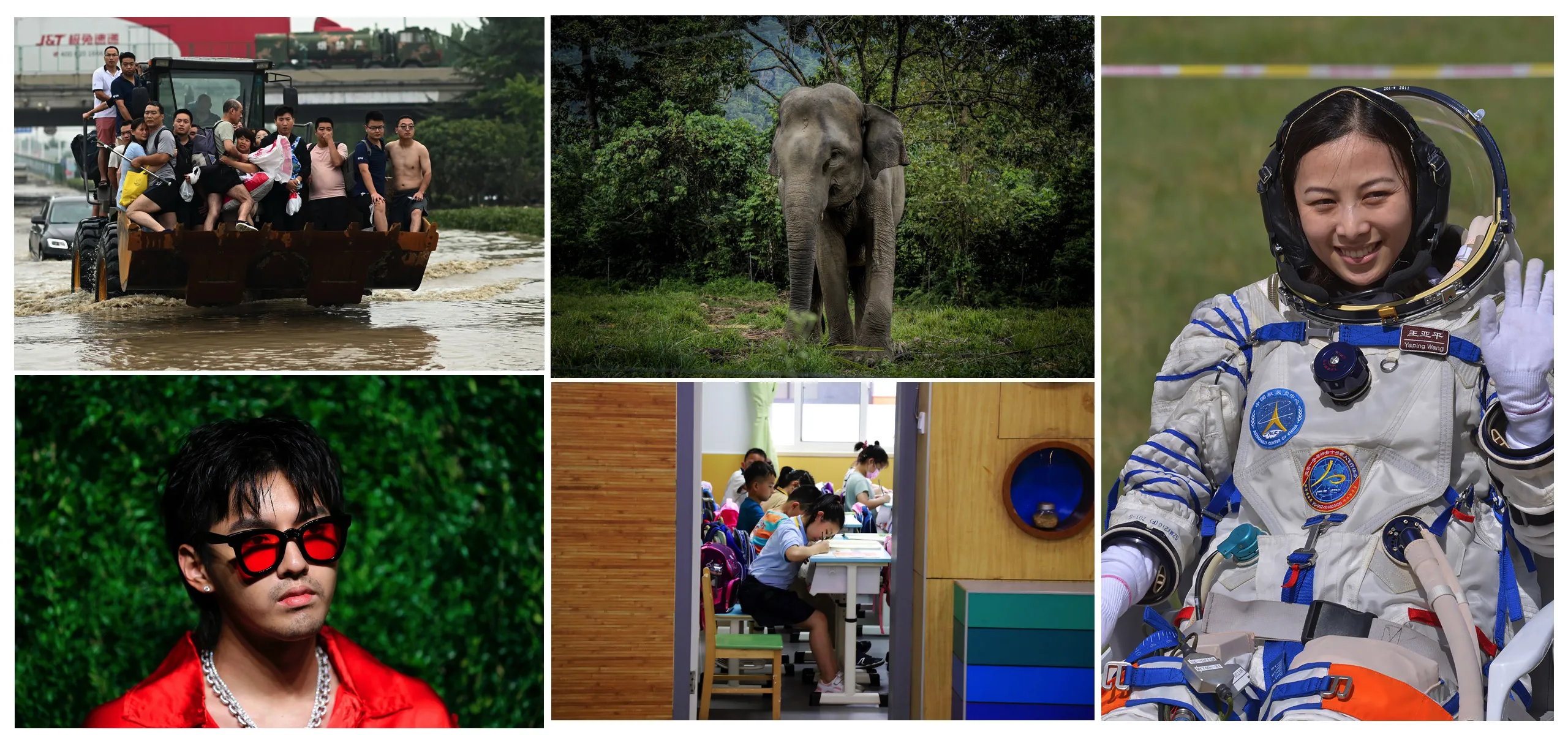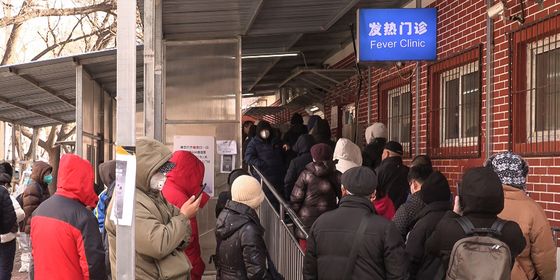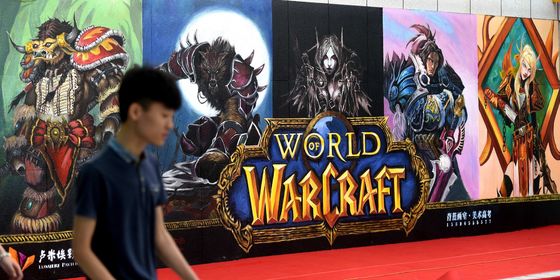Viral news that shocked, amused, and stayed with us this year
Since too long ago to remember, TWOC has been tirelessly bringing our readers weekly round-ups of trending memes, humor, rumor, and gossip on the Chinese internet in our Viral Week column every Monday. Over the past year, some of these viral happenings made more of an impression than others, both on our editorial team and Chinese public at large. Here is our short list, by month, of the most important, funniest, and most widely debated news that went viral in China in 2021:
January
The year started off with a bang when entrepreneur Zhang Heng accused his ex-girlfriend, actress Zheng Shuang, of abandoning two infants she had with him by surrogacy in the US. Because surrogacy is illegal in China, where many people are also morally opposed to the practice, the accusations led to public censure of Zheng and discussions on loophole abuse by celebrities in China
Brands swiftly terminated their cooperation with the 29-year-old actress following the accusations, and the National Radio and Television Administration issued their strongest-ever injunction against an entertainment celebrity, calling for Zheng to be banned from public appearances and future work in the industry. In April, Zheng was also accused of evading taxes, and she was fined 299 million RMB in August. These condemnations set the tone for a year that saw increased media attention on celebrity misbehavior and heavy intervention by Chinese authorities in the entertainment industry.
March
A Shanghai resident surnamed Wang reported that 10 decorative koi, valuing over 50,000 RMB in total, had been stolen from her home. Police caught up with the 88-year-old thief only to discover the fish had already been sun-dried, supposedly for food.
April
Lelush (Vladislav Ivanov), a Russian contestant on Chinese boy band talent show Produce Camp 2021, accidentally became icon for burnout when he gave repeated interviews stating he wished to quit the competition, even trying to get himself voted out by giving terrible performances and missing rehearsals.
Fans (and trolls), however, were charmed by his bored expression and bad rapping, and continued voting him into the next stage of competition. The reluctant idol’s struggles resonated with millennials feeling overwhelmed by a hyper-competitive society, forced to endlessly strive for material achievements when their only wish is to “lie flat.”
May
On May 22, agricultural scientist Yuan Longping died at the age of 91 and was mourned across the nation. Yuan is known for developing high-yield hybrid rice strains, first cultivated in the 1970s, that are credited with feeding 80 million additional people in China each year and fending off famine in dozens of other developing countries.
Also on May 22, the deadliest trail running race in Chinese history took place in at the Yellow River Stone Forest Park 100K, where adverse weather conditions and a lack of aid stations led to the deaths of 21 race participants due to hypothermia, including many top trail runners in China. The tragedy led to a temporary ban on trail races and marathons across the country, and reflection on the need for proper qualifications and safety awareness in the booming marathon and outdoor sports sectors (including TWOC’s own Issue 4 cover story on the subject).
June
At the annual meeting of the Communist Party on May 31, China’s family planning policy was amended to allow couples to have three children, spawning scores of headlines and memes about whether most urban families can afford three children in today’s economy and whether the new policy would curtail opportunities for women in the workplace even more. The policy was passed into law on August 20.
Videos of a herd of wild Asian elephants, which left their habitat in Xishuangbanna in southwestern Yunnan province and began migrating north in March of last year, went viral as both Chinese and international media began avidly following the elephants’ journey. As the herd feasted on food in the fields and villages they passed, netizens were amused by one video showing a baby elephant apparently getting drunk on distiller’s grain stored outside of one home, and sleeping off the bender in a field before returning to join its companions.
July
The Communist Party of China, founded in 1921 in Shanghai, celebrated its 100th birthday on July 1, accompanied by a slew of patriotic programming on film and TV.
On July 17, heavy rainfall that continued for several days breached levees and flooded fields and cities in Henan province, affecting over 1.2 million people with 63 confirmed dead. The provincial capital, Zhengzhou, saw over 200 millimeters of rainfall in an hour during a peak commuting time in the afternoon of July 20, leaving hundreds of people trapped in flooded subway tunnels and 14 dead.
On July 24, the government published the so-called “double reduction policy,” a set of guidelines aiming to reduce the academic burden on students and equalize access to educational resources. The policy calls for a reduction in the homework load of younger elementary school students, a ban on education companies going public on the stock market, and a prohibition on academic tutoring on weekends and national holidays at the compulsory education level, among other measures. The private education sector was hard hit by the policy, with many after-school tutoring centers and online education apps closing down or changing service, and leaving millions of employees out of a job.
August
On the evening of July 31, the public security bureau of Beijing's Chaoyang district detained actor and singer Kris Wu (Wu Yifan) on charges of rape, pending conviction. By the morning of August 2, Wu's accounts had been removed from every major Chinese social media platform. Earlier in July, 19-year-old influencer Du Meizhu had accused the then 28-year-old Wu of date-raping her when she was 17 and grooming young girls to have sex with him under the pretext of auditioning them for music videos.
From July 23 to August 8, Chinese athletes brought home 38 gold medals from the postponed Olympic Games in Tokyo, eventually ending up second in the medal table. The Games also spawned a plethora of new slang related to competition and athletes’ achievements.
September
On September 2, the National Radio and Television Administration published new guidelines regulating the entertainment industry, including banning TV coverage of “effeminate” male celebrities and reducing “vulgar” forms of content. The regulations follows new rules aimed at ending “chaotic fan culture” announced in August, with voting on some TV shows ended, and certain reality programs axed.
Soaring coal prices have led to a fuel shortage across the country, causing heavy power rationing in homes and businesses in the northeast of China. Residents reported cuts to heating and lighting in their homes, and stopped traffic lights, while manufacturers in the south of China have also reported power cuts that created ripple effects on a variety of industries.
October
After several months without a major outbreak, Inner Mongolia saw a spike in Covid-19 cases linked to domestic tourists in the region shortly after the Golden Week holidays. The infection spread to 11 provinces in one week and left nearly 10,000 tourists temporarily stranded in the Ejina banner in the northwest of the region.
On October 16, China’s Shenzhou-13 space mission sent three astronaut to the Tiangong Space Station, including female astronaut Wang Yaping. Wang is the first woman to visit the Chinese space station, and her historic achievement was hailed by many as a step forward for women in professional fields, though it attracted its fair share of sexist media coverage regarding Wang’s appearance and abilities.
Also this month, a man from Zhejiang province was arrested for traveling to neighboring Anhui province to steal chickens for the sixth time. Videos showed judges attempting to keep a straight face when they learned it was the man’s sixth attempt, and netizens were left wondering just how delicious Anhui chickens were.
November
Surveillance videos from Shangrao, Jiangxi province, showed workers in hazmat suits entering the residence of a quarantined individual and killing her pet corgi by striking it with an iron bar, sparking furor over the workers’ cruelty toward animals and overstepping of professional boundaries. The dog’s owner states she received threatening phone calls from unidentified individuals after she released the video online, and other residents of her apartment compound allege their pets have also been culled in the name of Covid-19 prevention. The staff responsible have been removed from their positions, but the city has not responded to further complaints about their virus-prevention methods.
In more lighthearted happenings this month, two e-bike drivers in Chengdu got into a collision and were caught on camera checking each other’s health codes on their mobile phones before proceeding to argue about the accident. In Changsha, Hunan province, an all-you-can-eat buffet restaurant banned a customer surnamed Kang from dining in because of his extraordinary appetite: Kang, who runs a food-related vlog, allegedly consumed 20 to 30 bottles of soy milk, 1.5 kg of pork feet, nearly 4 kg of shrimps, and finished all the lamb skewers available in one previous visit, causing the restaurant to lose hundreds of RMB.
December
The year ended as it began: mired in tasty “melons (gossip)” of celebrities getting cancelled for their misbehavior. On December 15, Chinese-American singer and actor Leehom Wang announced he and his wife, Jinglei Lee, were getting divorced. Just two days later, Lee publicly accused her ex-husband of emotional abuse, having extramarital affairs, paying for sexual services, and transferring property so that Lee would be left with little after the divorce. While the two ex-spouses traded barbs on the internet, brands terminated their cooperation with Wang, and he has announced he will take a break from the entertainment industry.
On December 20, the tax department of Zhejiang province fined Weiya (Huang Wei), China‘s “livestream queen,” over 1.3 billion RMB (210 million USD) for tax evasion. E-commerce and social media platforms Taobao, Weibo, and Douyin (TikTok) froze Weiya’s accounts on the same day. One of China’s biggest e-commerce influencers, Weiya sold 930 million RMB’s of goods in one night during a “Singles Day” presale event on October 20 this year.
Sun Haiyang, the father of an abducted child whose story became the basis of the 2014 film Dearest, was reunited with his lost son after 14 years on December 6. The experiences of Sun and Guo Gangtang, another father who was reunited with his abducted son after 24 years on July 11 (and who inspired the 2014 movie Lost and Love starring Andy Lau), sparked heated discussion on whether purchasers of trafficked children should face equal punishment as the traffickers, as both Sun and Guo’s sons elected to remain with their “adoptive” families and both fathers said they will not pursue legal responsibility.












